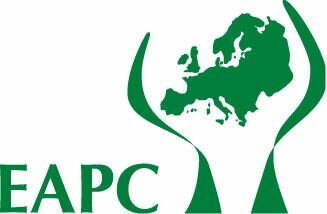Inadequate access to medication, especially strong opioids medication for pain relief, is usually an important barrier in delivering appropriate palliative care.
This was the case also in Romania where the law governing the medical use of opioids dates back to 1969. Although most opioids are available in Romania (immediate and slow release morphine, oxycodone, fentanyl, hydromorphone, methadone) and the cost is covered by the state, the consumption remains very low due to the fact that the law and regulations are restrictive in terms of prescribing as well as dispensing.
Only oncologists working in outpatient departments are allowed to establish the type and dose of the medication for patients at home by issuing an authorization. The patient cannot receive more than one opioid at a time so there is no possibility to prescribe slow release and immediate release strong opioid medication simultaneously. Only advanced cancer patients and those with obliterate arterial disease can receive morphine for severe chronic pain.
The procedure of prescribing is complicated: the oncologist issues the authorization, then the family physician prescribes the medication on a dry stamp prescription and a triplicate (the amount recommended by the oncologist) Thereafter the pharmacy is dispensing the drug. One prescription is valid for 10-15 days.
In a county with around 500.000 inhabitants only one or two pharmacies located in the main town are dispensing morphine and strong opioids. These pharmacies need a special authorization in order to provide such opioids.
All these barriers have been addressed by a group of Romanian and international experts from Pain and Policies Study Group of the University of Wisconsin. This group has analyzed the law and regulation using the WHO guide on Achieving Balance in National Opioid Control Policy and recommendations where written to the Ministry of Health. The WHO guide is available in several languages on the website of the Pain and Policies Study Group (PPSG):
http://www.medsch.wisc.edu/painpolicy
These recommendations where partially incorporated in the new law that was adopted by the Parliament in December 2005. This law will enter into force on the 5th of July 2006, one month following the release of the regulations accompanying the law. Regulations are still in a draft form. During a one week working visit in Wisconsin US the part of the regulations concerning the prescribing under the new law was written.
Under the new law all doctors have the right to prescribe provided they have included pain management in their specialist training curriculum or if they go through a 3 day pain management course and pass the final examination. The authorization was eliminated and the doctors will prescribe on secured(special prescriptions that have incorporated several security measures ) forms. Prescriptions will be valid for 30 days. One patient can have up to 3 opioids prescribed at the same time. Pharmacies will be able to store and dispense morphine and similar opioids without the requirement of a special authorization.
Education of physicians, pharmacists and police is considered of primary importance in the implementation of the program Through an OSI grant in partnership with American experts, the college of physicians, the college of pharmacist and the national postgraduate training centre a national training program will be developed with courses delivered in all 40 counties.
During the conference entitled "A modern and balanced opioid legislation for Romania" organized in partnership with the WHO, the Ministry of Health and the Hospice Casa Sperantei on March 22, 2006 this education program was supported by all participants. Participants from Moldova expressed their interest to update their regulations and to use the Romanian model. The final report of the conference will be available soon on-line: http://www.hospice.ro
Informational and educational material will also be produced and made available.
It was a lengthy process but we hope to see an increase in use of strong opioids that will reflect better pain management for patients.
Daniela Mosoiu
National Development Director
Hospice Casa Sperantei
mosoiudaniela@xnet.ro
this report has been taken from the CEE & FSU monthly newsletter (April 2006) http://www.hospice.hu/newsletter/
If you wish to subscribe to the English or Russian version: http://www.hospice.hu/newsletter/

